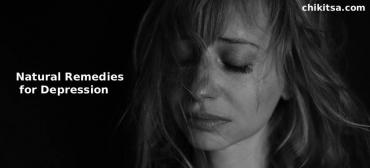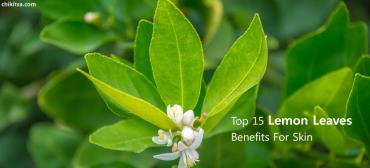Do You Have Periungual warts? Essential Oils Can Help

Warts are a fairly common skin disorder faced by several people, of all ages and both genders. Warts can be recognized by their rough, cauliflower-like appearance that typically grows on fingers, hands, feet, around the eyes, or on any part of the body.
The most common cause of warts is the Human Papillomavirus (HPV). Over 70 different types of Human Papillomaviruses are identified, each having a specific preference on the human body; which means that a virus that causes a wart on the face will not be the same for warts on hands and feet. Warts are common among people who have weak immune systems; therefore they can be seen more often among children and persons belonging to adolescent age groups. The following article helps to know how to use essential oils for periungual warts.
What Are Periungual Warts?
Periungual warts are rough elevations or simply warts that grow around the fingers and toenails. They begin as pin-sized growths and later progress to bigger pea-sized cauliflower-like growths. Periungual warts are common among children who have a habit of nail-biting and in adults who are required to wear closed shoes for long durations.
Small periungual warts are often painless and usually do not interfere with daily activities; large ones, however, may be painful or may cause discomfort due to their size. Periungual warts tend to make patients socially awkward as they may constantly feel conscious about warts while at a social event or around peers, family, and friends.
If left untreated or poorly treated, periungual warts can progress into larger growths and permanently damage the nail bed and cause deformity of nails. Also, the skin around infected nails is at constant risk of developing secondary bacterial or fungal infections or both. Therefore, it is very important to visit a dermatologist at least once and undergo conventional medical treatment and not replace it with home remedies.
Causes Of Periungual Warts
- Just like other warts, periungual warts are also caused when the Human Papillomavirus (HPV) enters an injured skin. This is the reason why periungual warts are more common among nail-biting children.
- Periungual warts may also occur in persons who have a compromised or poor immune system as in those with Acquired Immuno-deficiency Syndrome (AIDS) or those with auto-immune disorders or with pre-existing skin conditions like atopic dermatitis.
Special precautions must be taken by patients if adults or parents if their children have periungual warts as Human Papilloma Virus warts are contagious and can spread through contact either by the direct touch of infected skin or from sharing of towels, toys, and bedclothes.
[Also Read: Natural Remedies For Eyelid Dermatitis]
Essential Oils For Periungual Warts
Warts develop only on the superficial layer of skin and do not have any roots in the deeper layers; yet, it is quite difficult to get rid of warts as they have a tendency to recur even after cauterization or removal.
Since the recurrence of periungual warts is common even after removal, people are now seeking more natural and relatively less painful ways of getting rid of such warts. However, the management of warts with home remedies especially using essential oils for periungual warts requires patience and consistent use.
Following are some essential oils for periungual warts which may help in the treatment;
1. Tea Tree Oil
This oil is extracted from the Australian plant Melaleuca alternifolia. Tea tree oil has been officially recognized by several researchers as an antiseptic, anti-bacterial, anti-fungal, anti-viral, and anti-inflammatory agent.
Case reports have also concluded that tea tree oil for periungual warts is beneficial in the treatment of warts or even other skin conditions like eczema, psoriasis, ulcers, and acne, without any side effects.
[Also Read: Natural Remedies For Acne]
2. Lemon Oil
This oil has a potent antiviral activity and is useful for the treatment of periungual warts. The best way to use lemon oil for periungual warts is to apply the oil directly on the wart surface using a cotton bud. The oil should be in contact with the wart surface for a maximum duration of time, therefore it is better to use the oil at bedtime or when you are relaxed.
3. Oregano Oil
Owing to the natural properties which this herb possesses, oregano essential oil is a natural anti-inflammatory, antibiotic, and antiviral agent. The compound carvacrol present in oregano herb has been identified for its anti-viral properties.
4. Clove Oil
This magical oil contains several antiviral compounds that help to neutralize viruses. Clove oil is also useful as a natural anesthetic agent used frequently after dental procedures or in cases of migraine or joint pains. Likewise, it can also be used effectively in cases of painful periungual warts.
A word of caution, clove oil should be avoided by persons who have bleeding disorders or those on blood thinner medications as clove oil can cause bleeding.
5. Tagetes Oil
This oil is prepared from the marigold. It is often confused with calendula oil, yet it is quite different and works brilliantly in cases of skin infections like eczema, warts, and psoriasis and also in small cute wounds.
Tagetes oil has a therapeutic effect on skin conditions, especially fungal and viral infections and in respiratory conditions by working as a decongestant in cases of common cold, flu, and bronchitis.
In order to use essential oils safely and achieve maximum benefit, you must avoid applying the oils directly on the skin as they are very concentrated and very strong. Using an essential oil directly on the skin may cause an allergic reaction like burning or itching of the skin, rapid heartbeats, and difficulty in breathing.
A few drops of the essential oil which you may want to use should be mixed with a carrier oil like coconut oil, almond oil, neem oil, or jojoba oil and then applied to the surface of warts.
Use a cotton bud to apply the essential oil on periungual warts, preferably at bedtime, and cover it with a band-aid or a sticking tape. This allows the oil to work effectively while being constantly in contact with the surface of the wart.
The utility of essential oils for periungual warts requires more research so that people can use these oils safely. Special care and prior consultation are necessary if essential oils are to be used in children or pregnant and lactating women.
Some Additional Tips To Manage Periungual Warts
- Avoid nail biting
- Keep the area around nails and cuticles clean to avoid the development of fungal infections
- Use gloves while washing dishes or when cleaning surfaces with harsh chemicals
- Avoid sharing personal items like nail cutters, nail polishes, towels, etc.









